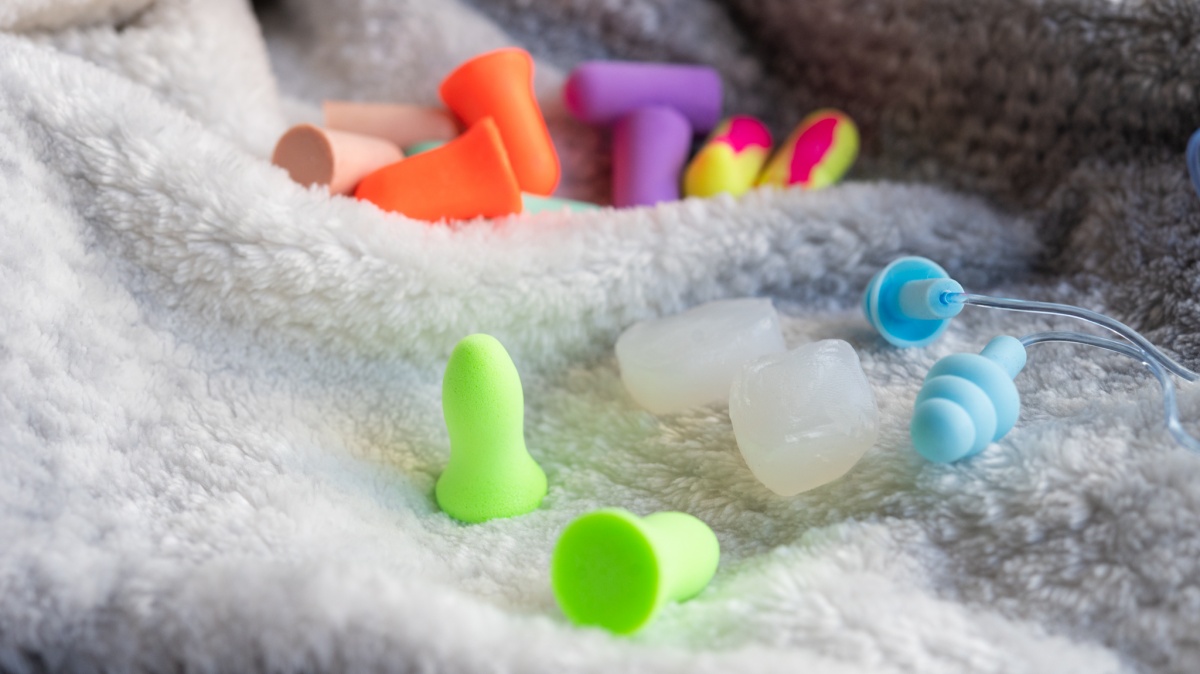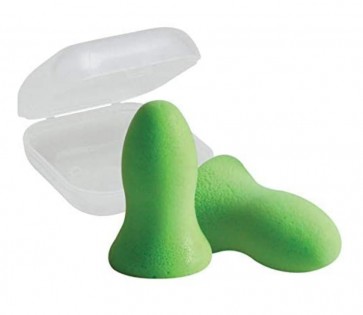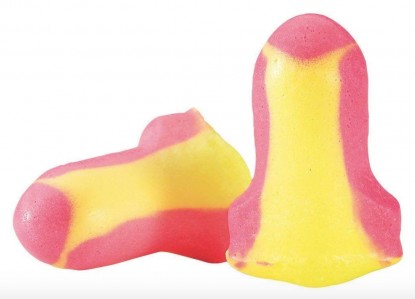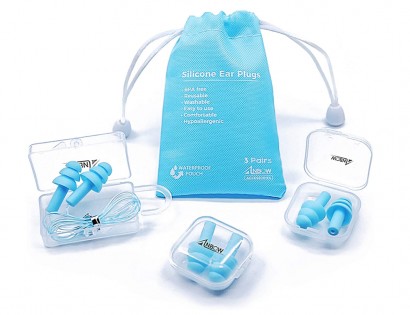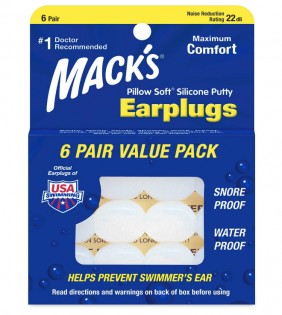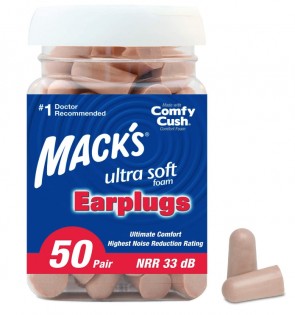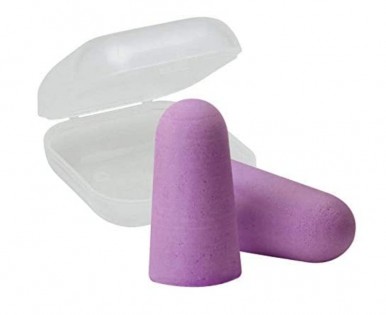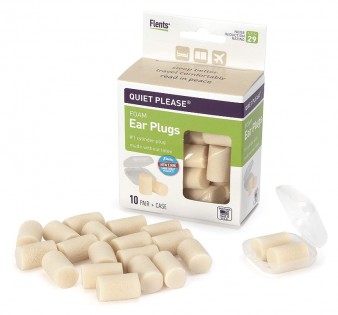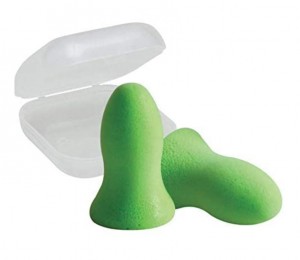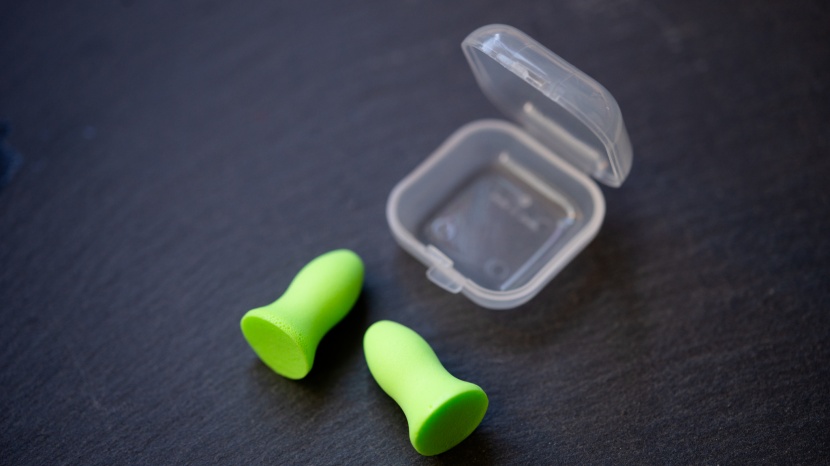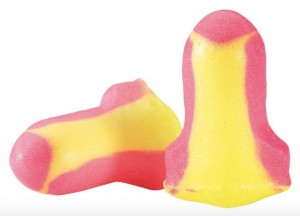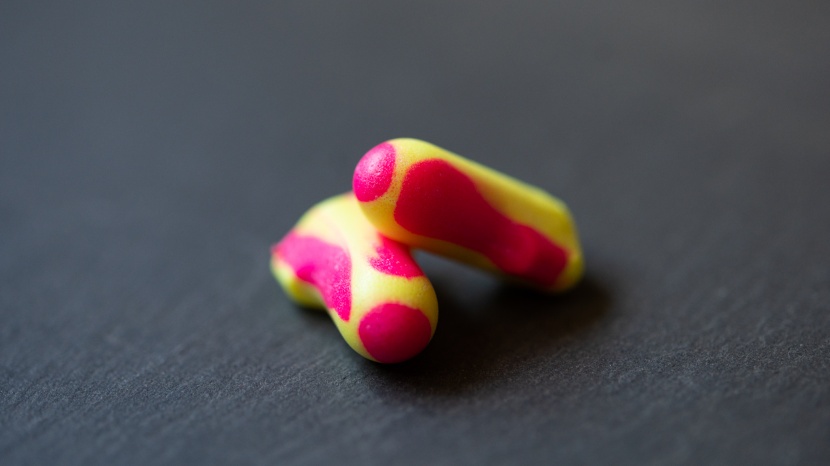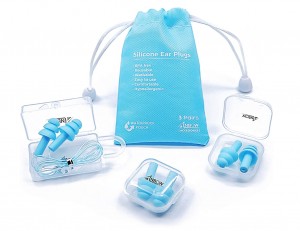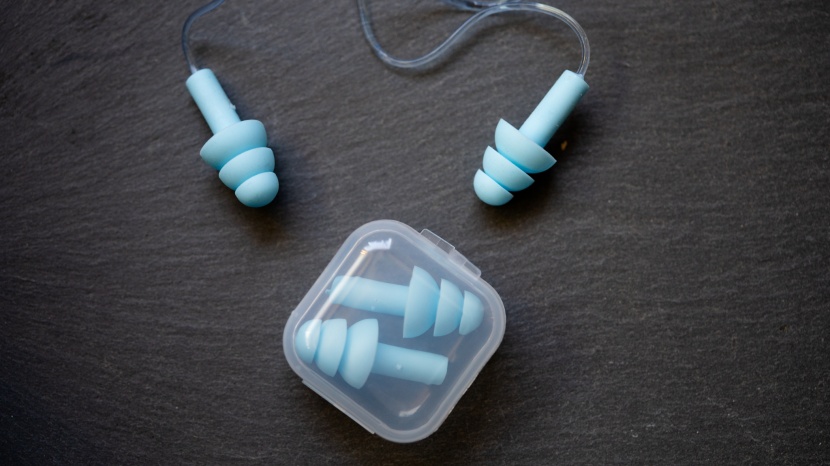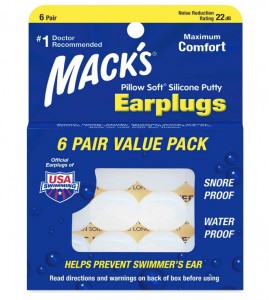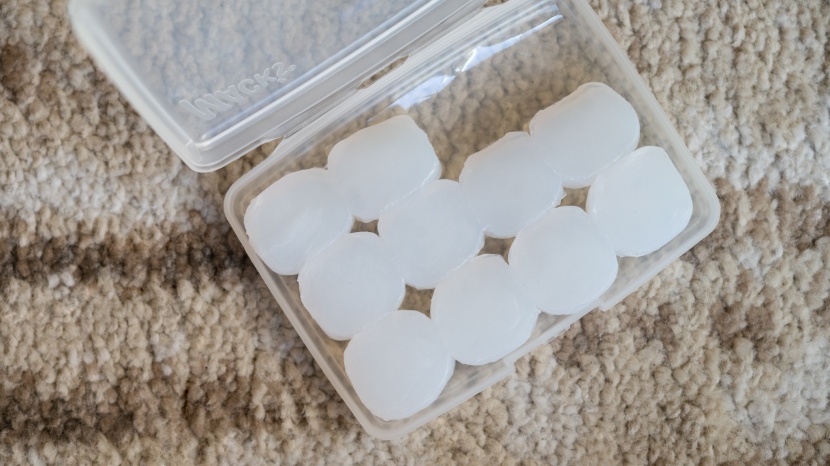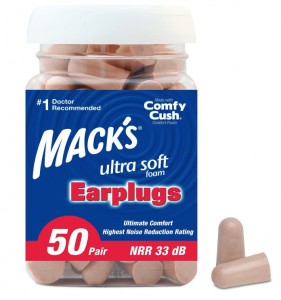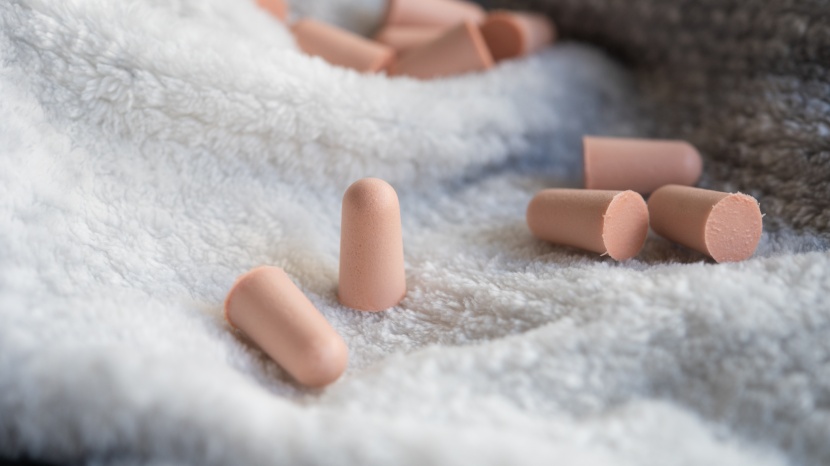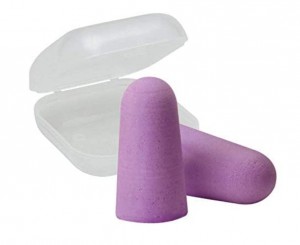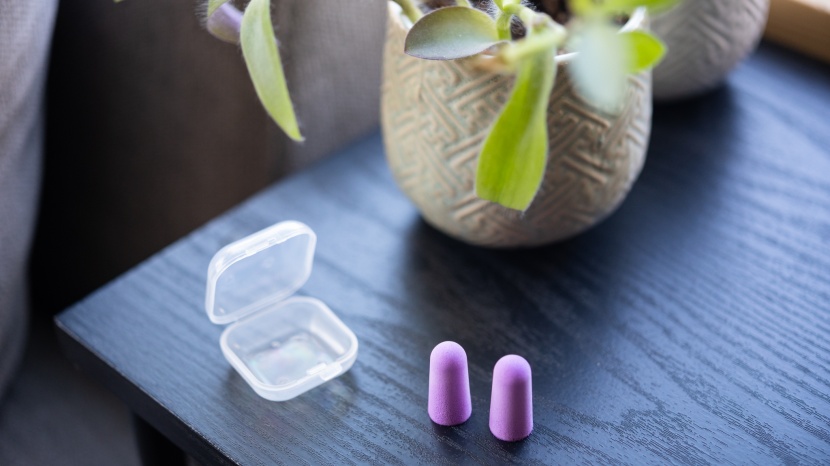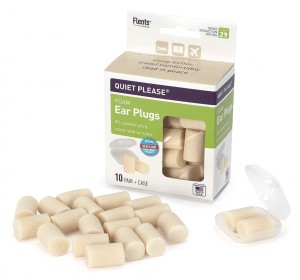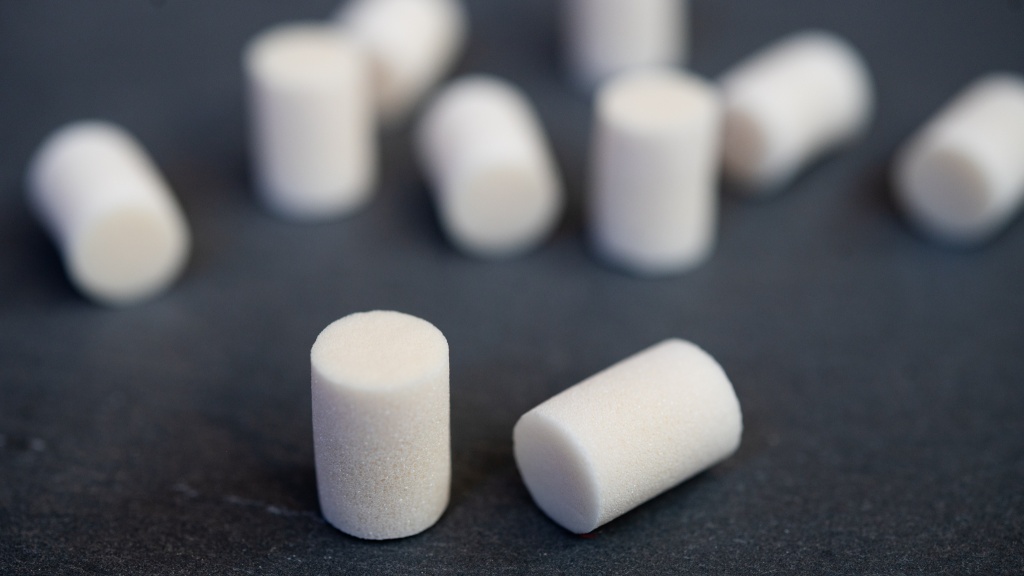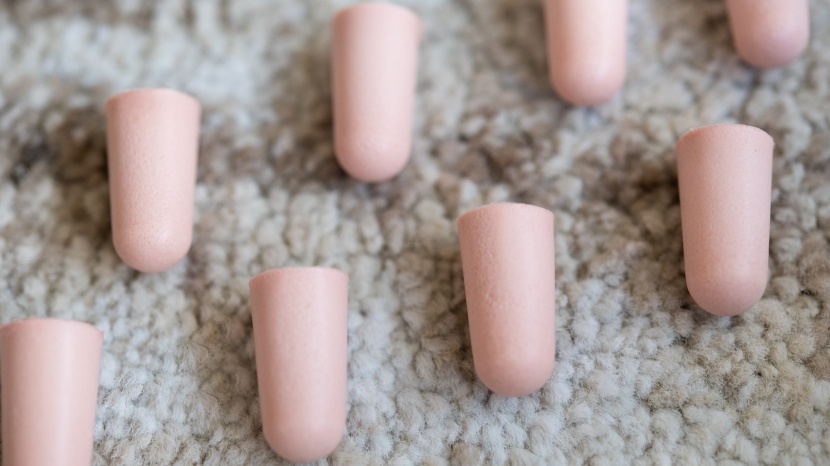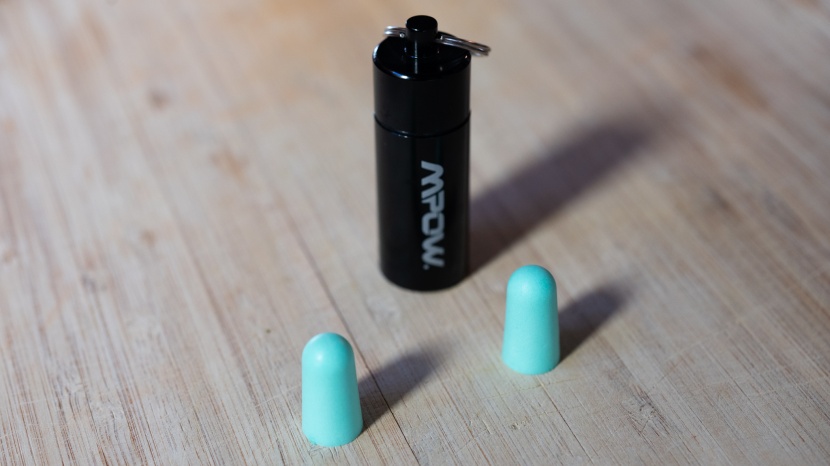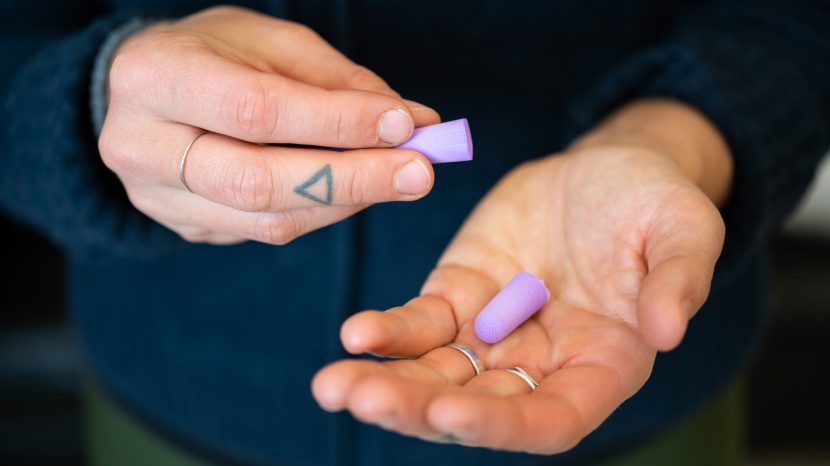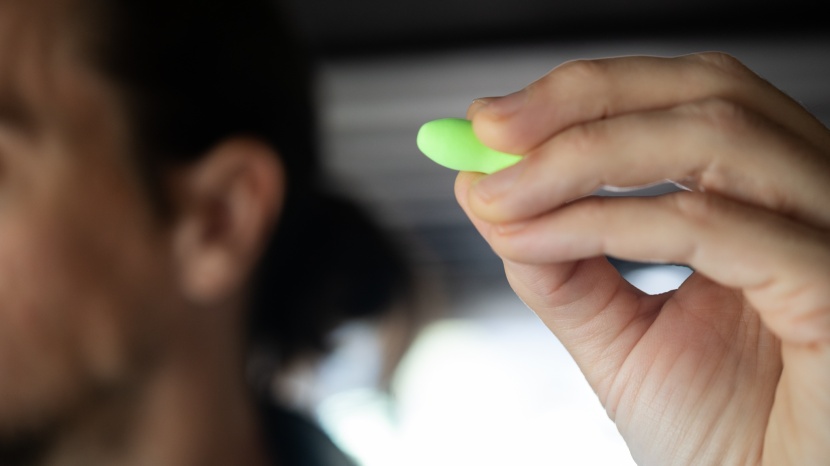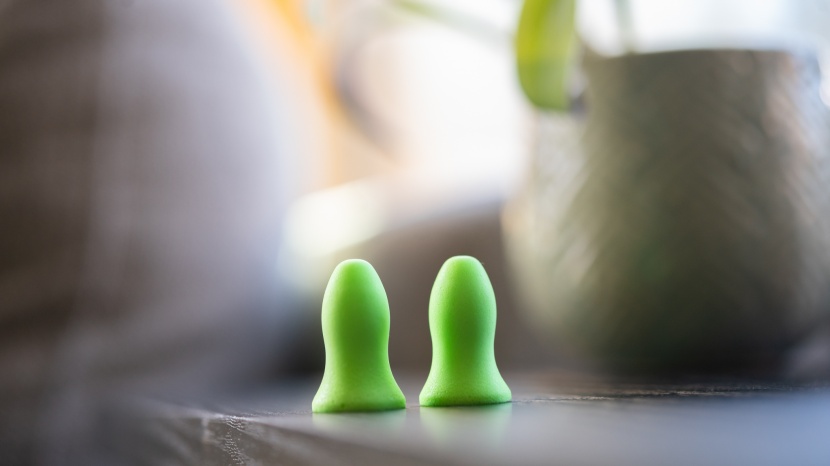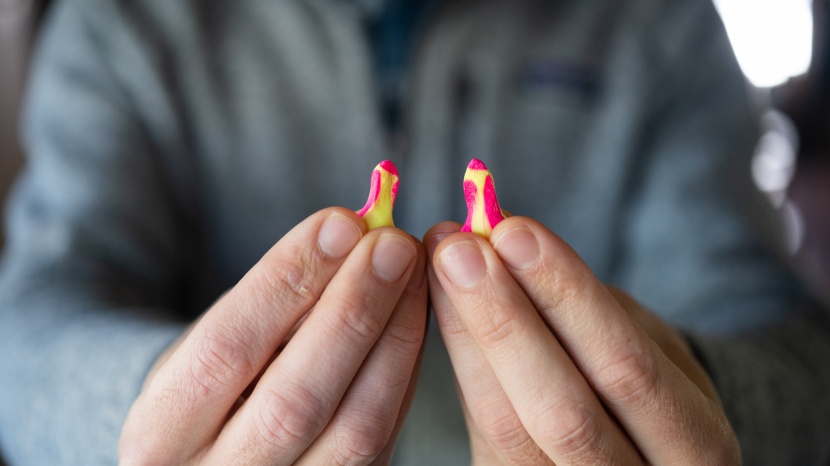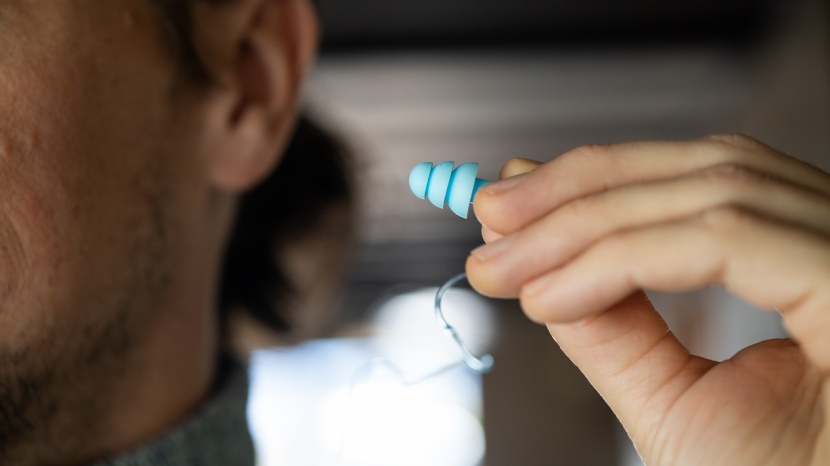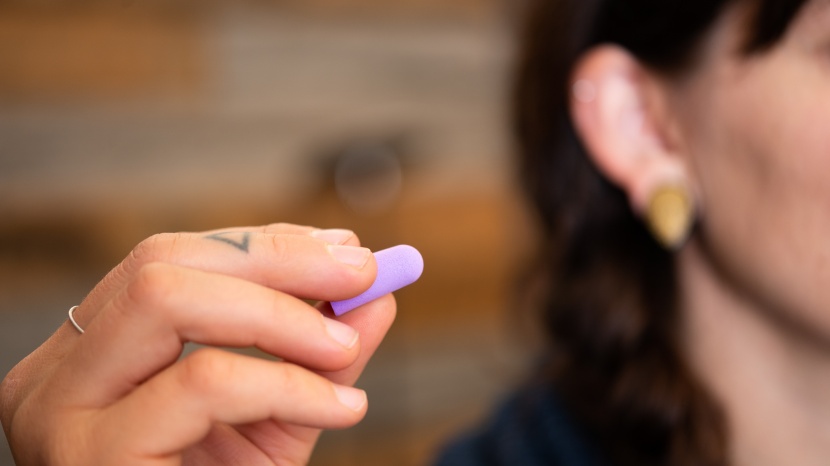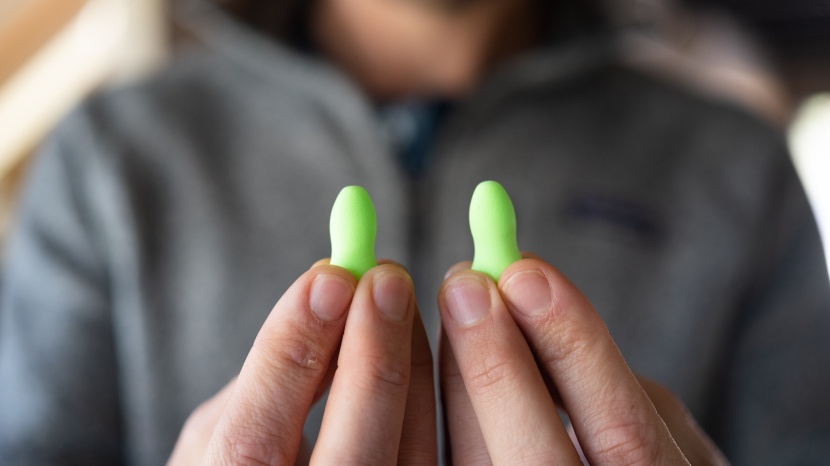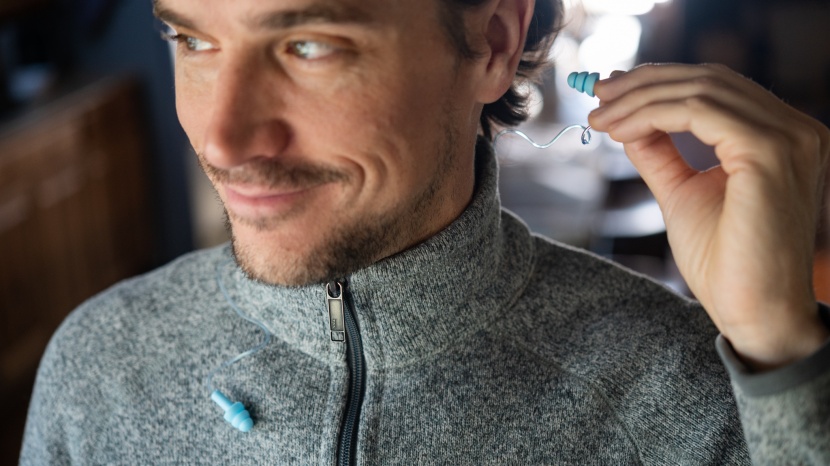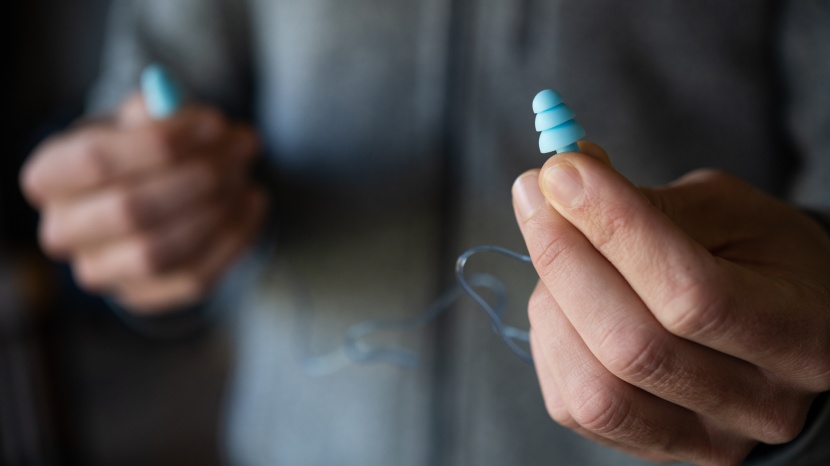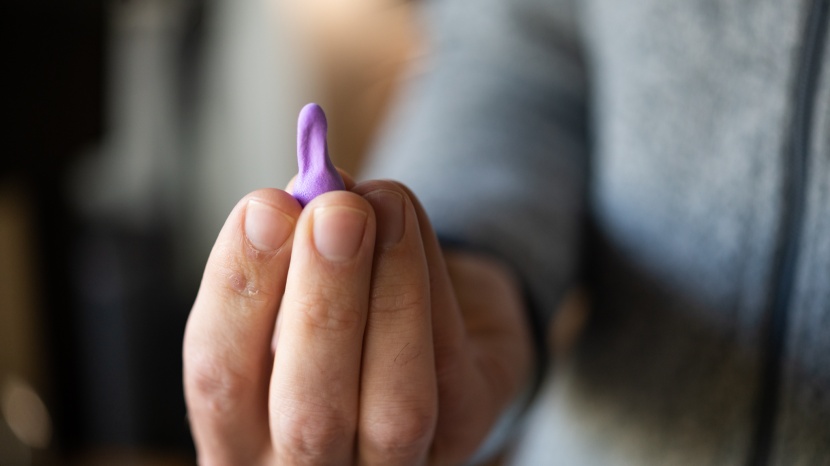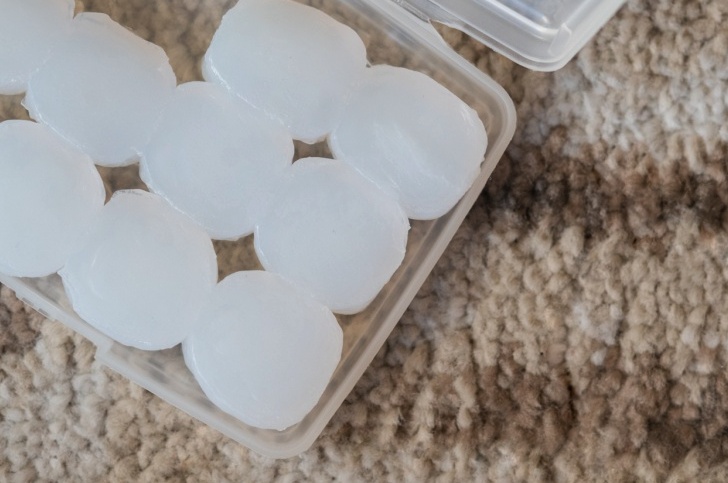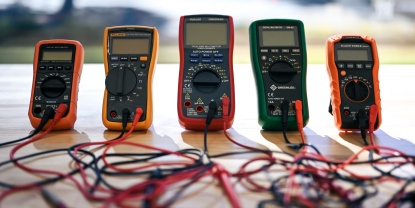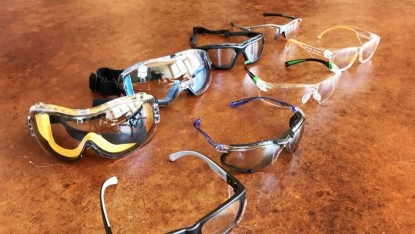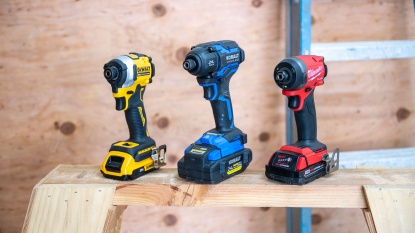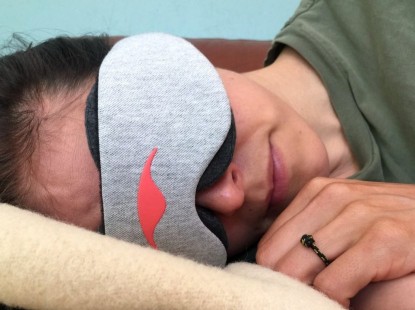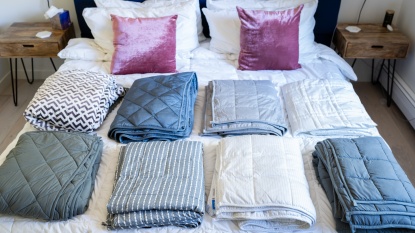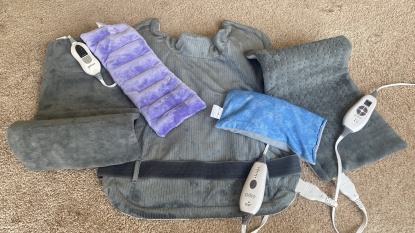Are you looking to drown out some unwanted noise? We researched dozens of sets of earplugs before purchasing the best 7 models for an extensive head-to-head comparison. We used our panel of expert research analysts to subjectively judge the overall comfort and ease of use of each model. We blasted music, operated power tools, and even spent the night sleeping with each set. In the end, it became clear which plugs are the best for specific applications, which are the best deal, and which are the best earplugs overall. Read on to uncover the details of our rigorous review.
Earplugs can be useful for getting a good nights sleep, but they're also an instrumental piece of PPE when using loud power tools — don't forget to pair them with some top-rated safety glasses to protect your eyes, too.
Our Top Picks
Best Earplugs
Material: Foam | Noise Reduction Rating: 33 dBa
The Flents Quiet Contour earplugs are at the top of our list when it comes to outstanding performance. We found the soda bottle shape of these plugs to fit nicely in most ears. The back is larger than the tip, making them easy to insert, and their foam expands rapidly. During our overnight trials, we also found these plugs to be comfy for sleeping. To top it off, they have a relatively high noise reduction rating of 33 decibels.
The Flents Quiet Contour plugs are considerably long. The curved shape is not well suited for those with smaller ears because you could not insert the plugs far enough to benefit from their profile. This model is not designed for swimming — if you plan on getting in the water, you will need to look elsewhere. The Quiet Contours can be reused a few times but are ultimately disposable. Still, we think the Contours are a top-notch product and are ideal for those looking for an easy-to-use and comfortable model.
Material: Polyurethane Foam | Noise Reduction Rating: 32 dBa
If you're shopping for plugs for commercial or construction purposes or just know that you'll need large quantities of plugs for yourself, we recommend the Honeywell Laser Lite. These plugs are highly conspicuous, easily displaying to safety inspectors that your employees comply with PPE regulations. The Laser Lites are sold in large quantities to refill any of the many large dispensers that Honeywell has available for purchase. Not only does using a dispenser cut costs, but it also cuts down on waste. If you work in a large warehouse or job site with many employees, individually packaged earplugs will produce a ton of garbage.
For those looking for a few sets of plugs to keep in the garage for the occasional use, the Honeywell Laser Lites are not the way to go — they are hard to find in small quantities. The Laser Lites are not intended for use while bathing or swimming and are not meant to be reused. However, if you're looking for very visible and comfortable plugs and you know that you're going to go through a whole lot of them, we highly recommend the Honeywell Laser Lite.
Material: Silicone | Noise Reduction Rating: 32 dBa
We recommend the ANBOW Reusable Silicone earplugs for those searching for washable plugs. The long stem and the concentric mushroom-shaped design make it extremely easy to insert this model. There is no rolling or compressing them with your fingers — you simply push them into your ear. ANBOW lists swimming as one of the uses for these plugs, and our team found that they provided a seal that would be sufficient for watersports.
There are a few drawbacks to the ANBOW Reusable Silicone design. Our research analysts found them less comfortable than expanding foam models because of their circular form — ear canals are not all shaped uniformly. Even though the manufacturer claims they are suitable for sleeping, we didn't find them comfortable unless you sleep flat on your back because the stems stick out so far. Despite these small shortcomings, the ANBOWs are a fantastic choice if you want a waterproof and washable set of plugs that are easy to insert.
Material: Silicone Putty | Noise Reduction Rating: 22 dBa
The Mack's Pillow Soft Silicone earplugs have a unique design. Instead of inserting the plug into your ear canal, this silicone putty-style version gets pushed into the grooves and contours of your outer ear. Thanks to their moldability, they can be used for just about any size and shape of ear. Once properly inserted, the putty creates a watertight seal making the Pillow Soft Silicones ideal for swimmers or those that don't like to get water in their ears while bathing. Although these plugs are considered disposable, they can be used up to five times, giving you a little extra value for your purchase.
There are numerous benefits to the silicone putty outer ear design. However, inserting these plugs is more time-consuming than plugs you roll between your fingers and insert into your ear canal. It took several attempts for our testers to get a good seal which can be quite frustrating initially. We didn't find these plugs terribly uncomfortable to sleep in, but foam versions are better for side sleepers. If blocking out sound is your prime objective, know that the Mack's Pillow Soft Silicone has a somewhat low noise reduction rating of 22 decibels. Even though this choice isn't suitable for everyone and has limited applications, we recommend these plugs for swimming and watersports.
Material: Foam | Noise Reduction Rating: 32 dBa
If you're looking for some extra soft earplugs, it's hard to beat Mack's Ultra Soft Foam. Made from super low-pressure comfort foam, this style of plug is the ultimate in cushiness. Their squishy material is perfect for sleeping. We could hardly tell that they were there while testing them overnight. Mack's offers various package options, so you can buy as few pairs as you want or get a pack of 100 individually wrapped pairs.
The Mack's Ultra Soft Foams are not without their flaws. They are so mushy that they take a bit longer to expand than more rigid foam plugs, so they take extra time to insert. This version is so soft that it's a bit daunting to insert into your ear canal because the plugs stay so thin after you've compressed them, so we recommend that you exercise extra caution while putting them in. That said, if you're looking for the softest pair around, we think Mack's Ultra Soft Foam is a good choice.
Material: Latex-Free Foam | Noise Reduction Rating: 33 dBa
If you are allergic to latex, you're in luck — the Flents Quiet Time plugs are 100% latex-free. These are made in the good old US of A, and they come with a convenient carrying case. This model's noise reduction rating is an admirable 33 decibels — ensuring that your ears will have a high level of protection from the audible environment.
We do have a few gripes about the Quiet Time. First of all, they are less comfortable than models with a contoured shape. Second, the basic form lacks a “back” that prevents the earplug from going into your ear too far. It'd be wise to be careful while inserting this model. Despite the drawbacks, we still think this is a great model if you're in the market for a latex-free earplug.
Material: Foam | Noise Reduction Rating: 29 dBa
The Flents Quiet Please plugs are about as basic as it gets. They have a cylindrical shape, a generic color, and a reasonably solid noise rating. We found with the old-school design that these plugs work well for smaller ears, though they might stick out a bit.
The shape of the Flents Quiet Please is not exactly ergonomic — this model is a blast from the past regarding design. If you're looking for a comfortable model, you're going to need to spend a few extra dollars for added satisfaction. The Quiet Pleases are not very soft either, but some people may prefer stiff plugs. If you want the classic-shaped earplug, these might be the way to go. Otherwise, we'd recommend going with a higher-end model.
Why Trust GearLab
Ross Patton and Austin Palmer have teamed up to review a long list of products. These guys have seen it all: impact drivers, rooftop tents, electric skateboards, and ergonomic keyboards. With Ross's formal education in environmental science coupled with ten years of experience in the snowsport industry, you can trust that he is giving products the ultimate scrutiny. One of the first employees hired at GearLab, Austin has been testing products nonstop for over half a decade. He is our resident expert when it comes to coming up with creative and innovative experiments to put devices to the true test.
To test these devices, we listened to the same song at the same volume on a home stereo to subjectively judge any differences in sound reduction or quality. Our team spent a night sleeping with each type to see any differences in comfort. We also used our expert panel of judges to see if there were any large differences in each model's overall feel.
Analysis and Test Results
To assess the overall functionality of these hearing, headache, and stress-saving devices, we divided our review into three sections: comfort while wearing, comfort while sleeping, and ease of use.
Comfort While Wearing
Products such as these must be as comfortable as possible. They will often be worn for long periods, sometimes for 40 hours a week or more. When you are getting that much use out of personal protective equipment, the last thing you want is to endure any discomfort or pain. For this reason, we put the majority of the weight of our total score on this section.
In the realm of pleasantry, it is hard to top the foam models. Our team of professional consumer product research analysts found that the Flents Quiet Contour and the Honeywell Laser Lite offered the highest degree of comfort. To insert these models, you compress them by rolling them between your fingers, and then once they are placed into your ear canal, they expand to fill the curves and figurations of your ear.
If you'd like a model that's a bit faster to insert but still offers an admirable degree of comfort, check out the ANBOW Silicone. These are not quite as comfortable as the Flents Quiet Contour or the Honeywell Laser Lite, but considering that they are reusable, we think the trade-off is worth it.
Comfort While Sleeping
Many people have partners who snore, need to sleep during the day, or just prefer little or no noise while they are resting. We took the time to get a night of sleep in each different model to determine the distinguishing differences in the comfort of sleeping with each product.
We found the Flents Quiet Contour and the Honeywell Laser Lite to offer the utmost comfort during our assessment. Both of these plugs are made of foam, making them exceptionally comfortable for sleeping.
Ease of Use
These devices can often be a pain to put in your ear. The foam expands too quickly with some types because it is so soft, making it a race to get into your ear canal on time. On the flip side, some expand so slowly that you'll be waiting for minutes on end before they begin efficiently reducing noise. If you prefer the putty-style earplug, you will need to roll them into a ball before putting them in your ears, and it may take a few tries to get a proper fit.
Thanks to their simplistic design, we found the ANBOW Reusable Silicone plugs were the easiest to insert. You can just hold them by the stem and push them into your ear canal without rolling or squeezing beforehand.
Foam plugs such as the Flents Quiet Contour and the Honeywell Laser Lite are reasonably easy to use. You can simply roll them in your fingertips to compress them and then quickly insert them before they expand.
Some plugs, such as Mack's Pillow Soft Silicone, can take a little bit of extra time to insert. With this model, you have to roll each plug into a ball and then push them into your outer ear rather than insert them into your ear canal. This style requires a little bit more time and effort to deal with, but once established, the seal created with silicone putty will keep your inner ear nice and dry.
Conclusion
Finding the right type of a seemingly basic product can often be a surprisingly tricky task. If you're swimming, you aren't going to want the same set as somebody who has a snoring partner. Likewise, if you like to nap with plugs in, you won't need a set with the same noise reduction rating as if you were running a jackhammer. Here at GearLab, we aim to take the unnecessary headache out of shopping so that you can purchase the perfect product for your needs. Whether you are using your plugs professionally or just to take a stress-free nap, we hope that after reading this article, you now have the knowledge you sought to make an informed purchase.
—Ross Patton and Austin Palmer


